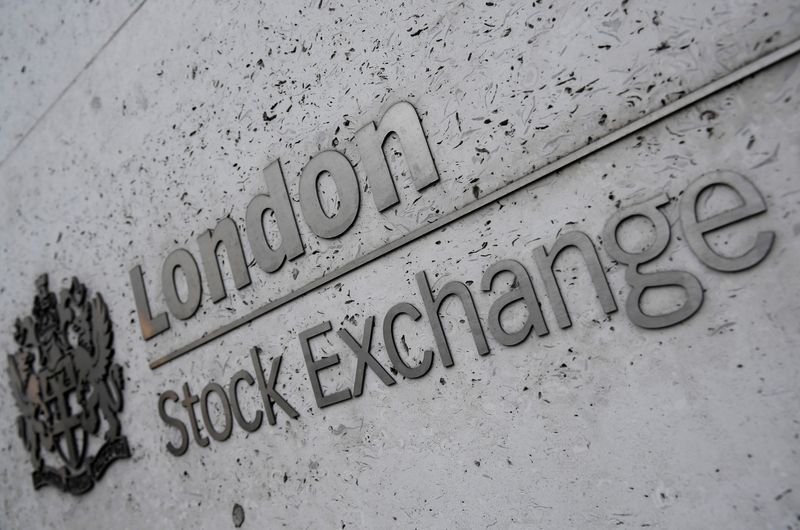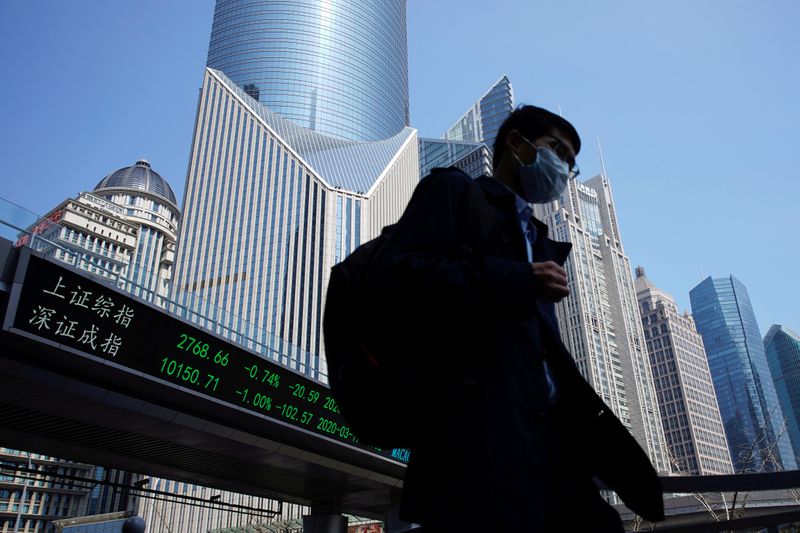By Tommy Wilkes
LONDON (Reuters) - Stock markets rallied on Monday as the Bank of Japan added more stimulus to cushion the impact of the coronavirus and investors cheered news more countries were easing lockdowns, though the oil price took another tumble with storage running short.
The Bank of Japan matched market speculation by pledging to buy unlimited amounts of government bonds and sharply raising purchases of corporate and commercial debt, the latest in a raft of vast central bank stimulus plans that have helped propel a near 25% rally in global stock markets.
The Federal Reserve and the European Central Bank meet later in the week, with the latter likely to do more bond buying.
Chris Scicluna, head of economic research at Daiwa Capital Markets, said while he expected both meetings to focus chiefly on implementing current commitments, "there might well be tweaks... to their various purchase and liquidity programmes".
The Euro STOXX 600 rose 1.8%, following on from decent gains on Asian markets. Germany's DAX rose 2.37%, France's CAC 40 1.93% and Britain's FTSE 100 1.66%.
Wall Street also looked set to open higher, with S&P futures 0.7% ahead.
The MSCI world equity index, which tracks shares in 49 countries, rose 0.78%. The index is now up 25% from its low point on March 23, but is still some 22% off the highs in February before panic over the virus caused markets to tank.
Around 173 companies in the S&P 500 will report earnings this week, including Apple (NASDAQ:AAPL), Amazon (NASDAQ:AMZN), Facebook (NASDAQ:FB), Microsoft (NASDAQ:MSFT), Caterpillar (NYSE:CAT), Ford, General Electric (NYSE:GE) and Chevron (NYSE:CVX).
Analysts expect a 15% decline in S&P 500 first-quarter earnings, with profits for the energy sector estimated to have slumped more than 60%, raising fears of debt defaults.
The United States and European Union both release first-quarter economic growth numbers this week, while the U.S. will also unveil the influential ISM survey on manufacturing.
But not everyone thinks the current crop of data is as relevant for markets, which have recently shrugged off huge rises in U.S. jobless claims to focus on how quickly economies will rebound as government-imposed lockdowns are lifted.
"I don’t know why people pay so much attention to today’s data. We know it’s all bad. The new information will come in the summer," said Stephen Jen, co-founder of hedge fund Eurizon SLJ Capital.
He said the "tug of war" between those predicting a sharp v-shaped rebound and those expecting a slower recovery would not begin in earnest until May's data.
More U.S. states prepared to ease restrictions on commerce this week despite health experts warning that there is still too little testing in place, while some European countries further eased their lockdowns.
OIL DROPS, ITALY GETS REPRIEVE
Oil prices weakened sharply again and looked set for another volatile week.
Crude prices have fallen in eight of the last nine weeks, with U.S. crude even trading below zero last week as demand collapsed due to the pandemic and supply cuts failed to keep up, leaving more oil than could be stored.
U.S. crude slid $2.29 to $14.65, while Brent crude futures slipped $1.1 to $20.34 a barrel.
Italian government bond yields dropped between 14 and 17 basis points after S&P Global late Friday left the country's credit rating in investment grade territory.
Investors had feared the ratings agency would cut heavily-indebted Italy to 'junk'.
Benchmark German 10-year bond yields were little changed, while U.S. Treasury yields rose marginally.

The U.S. dollar dipped as the broader upbeat mood encouraged investors to move back into other currencies. The euro inched higher to $1.0833, while sterling gained 0.3% and the Japanese yen a similar amount.
